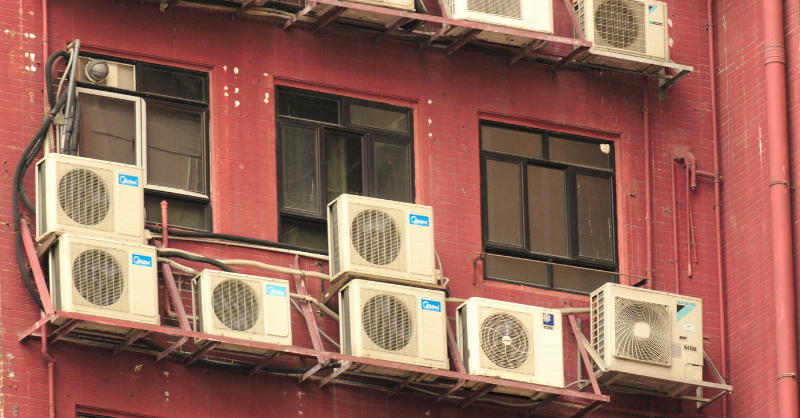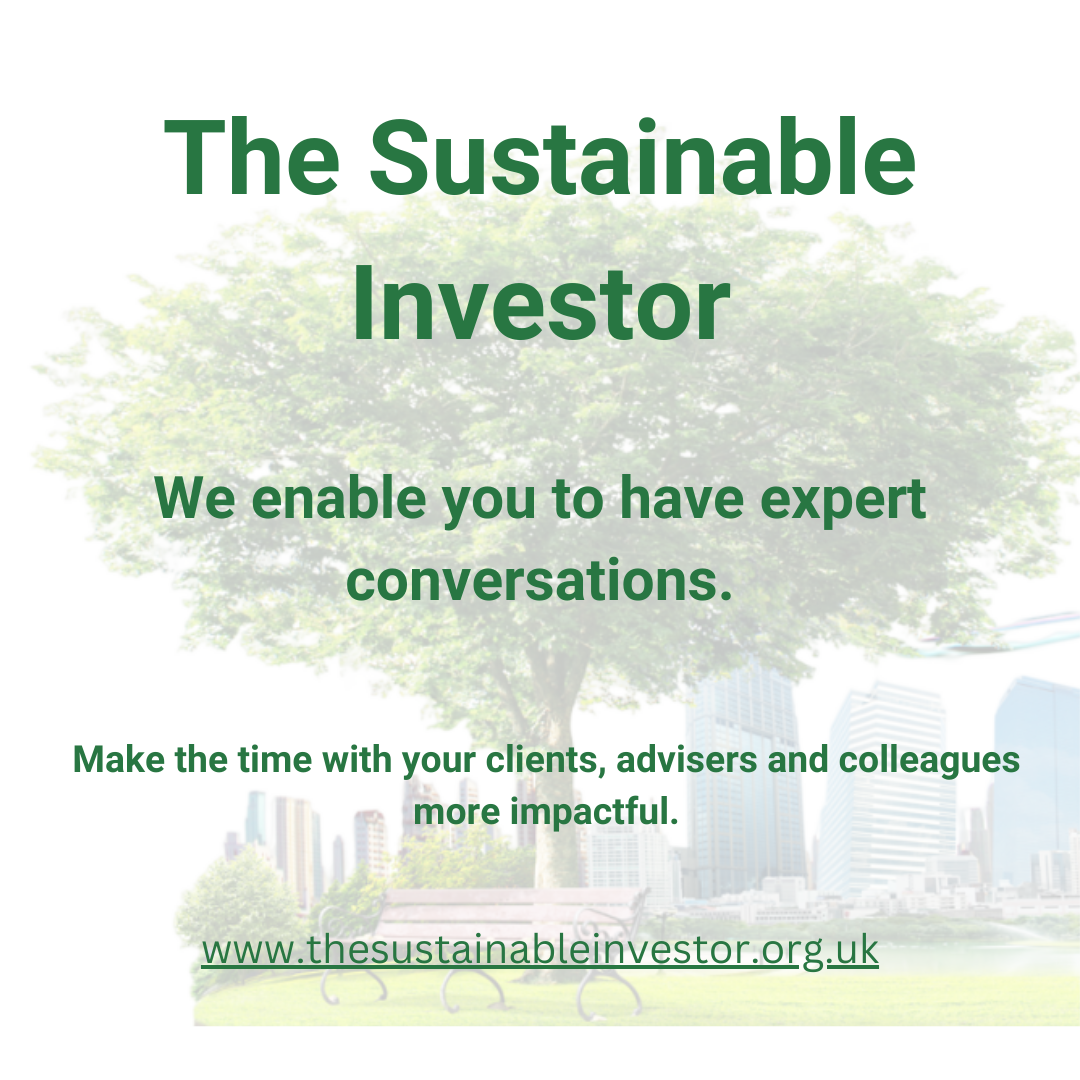
Bridging the gap 32.23
In this week's blogs we look at how the specific focus on agricultural productivity can actually lead to system inefficiency, AND why Human Rights is as much a value and investing issue as it is about ethics.
In case you missed it ...
Not a subscriber yet? Click here
('Bridging the gap' is free)
Here is a selection of recently published Deep Dives, Perspectives and Quick Insights that our subscribers get to read in full.
- When a focus on productivity leads to system inefficiency (Agriculture / Natural Capital)
- Human rights is not just a values issue (Transitions / Human rights)
Plus a few from the archives:
- Green cement - there are solutions (Greener Energy Applications)
- Reducing electricity demand and still staying cool (Built Environment / Wellness, Greener Energy Applications)
- Choking hazard - the link between air pollution and health (Built Environment / Wellness)
What subscribers are reading this week
When a focus on productivity leads to system inefficiency
(Agriculture / Natural Capital, Premium and Professional)
"We simply pay too much to the wrong people, to grow the wrong foods the wrong way, in the wrong places"
(Earl Blumenauer, US rep. Oregan's 3rd congressional district)
Has a focus on farm productivity led to system inefficiency?
Historically, investment in agriculture has been focused on increasing yields or increasing farm productivity - from research into pesticides and fertilisers through to agtech designed to irrigate, cultivate and process more efficiently.
That focus on 'yields per unit input' has led to a massive growth in agricultural produce supply and subsequent declines in prices. It has also led to production becoming specialised on a small number of highly productive crops creating a dependency risk. The top 5 exporters of wheat and rice represented 59.4% and 72.95% of global exports by value respectively. That availability of increasingly cheaper calories has led to a vicious circle of increasing demand for cheaper production, driving damage to the environment, increasing waste and higher levels of obesity (which now exceeds the prevalence of underweight) and the associated health and economic issues.
So could it be that a focus on farm productivity actually promotes system inefficiency?
We discuss a proposal from Chatham House that suggests a shift in focus from yields per unit input or ‘Total Farm Productivity’ to the number of people that can be fed healthily and sustainably per unit input or ‘‘Total Resource Productivity’.
Link to blog 👇🏾

Human rights is not just a values issue
(Transitions / Human rights, Professional)
For many people human rights is a values and ethics issue. There are company behaviours and actions that are just plain wrong. People don't want their capital, their money, invested in companies with poor human rights records and practices. For many years, that was as far as it went. Human rights, with a few major exceptions, was a moral issue.
Then the world started to change. Society's views on human rights became more enshrined in the law. In many ways this should have been expected. Public opinion leads, and the politicians follow. Over time the penalties move from ineffective sanctions, through fines, to actions that have material impacts on companies.
Now, it is increasingly understood that human rights is no longer just a values and ethics question. It's also very much an investing issue, one that can have a very direct impact on a company's long term value creation. Companies that do not prepare for this new world will lose competitive positioning; it's not just about paying fines anymore. Companies increasingly bear responsibility for what happens in their supply chains, and they face legal action in their home country for acts elsewhere.
This does not make the ethics aspect of human rights any less important to investors. But, what it does add is a double hit for companies (and investors) that pay lip service to human rights, those who see it as a box ticking exercise. First, people are much more willing to call out greenwashing. Second, not properly taking human rights into account in investment decision making can have material implications for financial value.
Link to blog 👇🏾

From the archives
Green cement - there are solutions
(Greener Energy Applications, Premium and Professional)
MIT engineers have created a carbon-cement supercapacitor that could potentially store large amounts of energy. Could it allow structures to become large batteries? Too early to tell.
The production of cement is a big contributor to global GHG emissions - almost as much as the global airline and shipping industries combined. Unlike passenger cars, where we have a financially and technically viable alternative (electric vehicles or EVs), the current low carbon alternatives to traditional cement are niche products, and they look hard to scale. We will need a lot of work, and investment, over the coming decade or more if we are to get close to decarbonising this important industry. We need to start now.
The so-called hard to decarbonise sectors, steel, cement, chemicals, and some forms of transport, are currently massive contributors to GHG emissions and environmental (and social) harm. Yes, we need to focus on green electricity, and EVs, but we also need to start tackling the harder challenges - which means investment and financial support. We wrote about this back in May.
Link to blog 👇🏾

Reducing electricity demand and still staying cool
(Built Environment / Wellness, Greener Energy Applications, Professional)
Spain is sweltering in another heatwave that meteorologists warn could be the most extreme of the summer. Extreme heat has hit countries around the world causing discomfort and devastation.
These extreme conditions have been exacerbated by the effects of El Nino but underlying temperatures are going up. As the world continues to warm, and as those in the Global South become more affluent, this is going to become an increasingly important contributor to electricity demand. The good news is that there are solutions - among which demand management is potentially one of the most powerful and (technically) easily implemented. This is something we wrote about in a blog back in April.
Recent attention has been focused on the need to strengthen our electricity grids to accommodate variable sources of generation, such as renewables. But there are also ways of helping the electricity supply we have go further. This can postpone the need for extra spending AND reduce some of the transition risks.
When most people think about the security of electricity supply they tend to start from "making sure we have enough supply to meet demand". But what if we turn the question around. Instead of thinking about electricity demand as being fixed, why not start with "what demand can we shift into periods of surplus or cheaper supply". Welcome to the world of demand management - probably the least known, but potentially most important tool we have for decarbonising our electricity systems.
Link to blog 👇🏾

Choking hazard - the link between air pollution and health
(Built Environment / Wellness, Professional)
ER visits for heart problems plummeted after Pittsburgh coal processor shut down recently. "Levels of one highly-toxic pollutant fell 90% & ER visits for heart problems decreased 42% immediately after shutdown"
There is a link between air pollution and our health. There are both direct and indirect impacts on health and our bodies are affected in ways that we are beginning to understand. We discussed how it impacts our skin, eyes, respiratory disease, lung cancer, cardiac incidence, dementia, breast cancer, fertility and childbirth in a Deep Dive back in June.
Global excess mortality from all ambient air pollution was between 7.11 and 10.41 million per year. In addition it was estimated to lower life expectancy by between 2.3 and 3.5 years - more than from smoking tobacco.
Link to blog 👇🏾

Please forward
to a friend, colleague or client
If this was forwarded to you, click the button below and sign up for free to get 'Bridging the gap', 'What caught our eye' and the 'Sunday Brunch' in your inbox every week.

Please read: important legal stuff.
